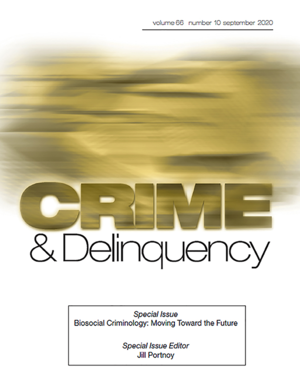Reports & Publications
Below you will find key reports and publications by UW CoLab researchers. Click through to view.
Gilman, A., Walker, S., Vick, K., & Sanford, R. (2021). The impact of detention on youth outcomes: A rapid evidence review. Crime & Delinquency.
Walker, S., Vick, K., Gubner, N., & Herting, J. & Palinkas, L. (2021). Accelerating the conceptual use of behavioral health research in juvenile court decision-making: Study protocol. Implementation Science Communications, 2(14).
The Judge's Role in Promoting Positive Adolescent Development & Accountability (2020). Seattle, WA: UW CoLab.
Walker, S. & Herting, J. (2020). The impact of pretrial juvenile detention on 12-month recidivism: A matched comparison study. Crime & Delinquency, 1-23.
Walker, S., Valencia, E., Miller, S., Pearson, K., Jewell, C., Tran, J., & Thompson, A. (2019). Developmentally-grounded approaches to juvenile probation practice: A case study. Federal Probation, 83(3), 33-41.
Walker, S., Duong, M., Hayes, C., Berliner, L., Leve, L., Atkins, D., Herting, J., Bishop, A., & Valencia, E. (2019). A tailored cognitive behavioral program for juvenile justice-referred females at risk of substance use and delinquency: A pilot quasi-experimental trial. PLoS ONE, 14(11).
SAJE Center. (2019). Rapid Evidence Review (RER): The Impact of Confinement-Oriented Detention on Youth Outcomes. Seattle, WA.
Almquist, L. & Walker, S. (2019, September 20). Courts, Social Services Can Work Together on Housing Instability. Youth Today. Retrieved from https://youthtoday.org/2019/09/courts-social-services-can-work-together-on-housing-instability/
McHenry, G., Crockrell, V., Holmes-Ware, L., Coil, A., Young, J., Drake, E., Hamilton, Z., McCurley, C., Peterson, A., Walker, S., & Valencia, E. (2018). Washington State Partnership on Juvenile Justice 2017 Annual Report to the Governor and State Legislature. Olympia, Washington.
Walker, S., Valencia, E., Bishop, A., Irons, M. & Gertseva, A. (2018). Developing a coordinated youth housing stability program for juvenile courts. Cityscape, 20(3), 117-137.
Walker, S., Valencia, E., & Vick, K. (2018). Report of a Research to Practice Partnership to Develop the Youth Housing Stability Model for Juvenile Courts. Seattle, WA: Center for the Study and Advancement of Justice Effectiveness (SAJE).
Walker, S., Bishop, A., Haumann, E., & Catena, J. (2017). Deploying street outreach workers to reduce failure to appear in juvenile court for youth of color: A randomized study. Crime & Deliquency, online first.
Esposito, M., Lee, H., Hicken, M., Porter, L., & Herting, J. (2017). The consequences of contact with the criminal justice system for health in the transition to adulthood. Longitudinal and Life Court Studies, 8(1), 57-74.
Walker, S. & Bishop, A. (2016). Length of stay, therapeutic change and recidivism for incarcerated juvenile offenders. Journal of Offender Rehabilitation, 55(6), p. 355-376.
Walker, S., Bishop, A., Logan-Greene, P., Nurius, P. (2016). The heterogeneity of treatment needs for justice involved girls: A typology using latent class analysis. Criminal Justice and Behavior, 43(3), 323-342.
Lee, T., Walker, S., & Bishop, A. (2016). The impact of psychiatric practice guidelines on medication costs and youth aggression in a juvenile justice residential treatment program. Psychiatric Services, 67(2), p.214-220.
Correll*, J., Walker, S., Edwards, T. (2016). Parent perceptions of participating in a program for adolescents who are violent at home. Journal of Family Violence, online first.
Walker, S., Bishop, A., Pullmann, M., Bauer, G. (2015). A research framework for understanding the practical impact of family involvement in the juvenile justice system: The juvenile justice family involvement model. American Journal of Community Psychology, online first.
Walker, S., Bumbarger, B., & Phillippi, S. (2015). Achieving successful evidence-based practice implementation in juvenile justice: The importance of diagnostic and evaluative capacity. Evaluation and Program Planning, 52, 189-197.




















